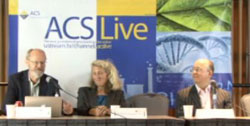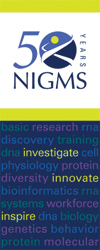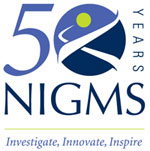Update: Revised content in this post is available on the NIGMS webpage, Council’s Role in the Funding Process.
This is a question we’re often asked shortly after the NIGMS Advisory Council meets in January, May and September. The short answer is: No. Here’s why.
As described in a previous post, our Council provides a second level of peer review of applications assigned to NIGMS. It is not a second study section. Instead, the Council provides oversight to ensure that the initial review for scientific and technical merit conducted by the study section was fair and in compliance with policy.
Each Council member is assigned a set of applications from the most recent round of study sections. He or she reads the summary statements for these applications and considers whether:
- There was appropriate expertise to review the application.
- The summary statement comments are substantive, appropriate and consistent with the priority score.
- The budget is suitable for the proposed work.
- The project addresses NIGMS programmatic needs.
Most applications pass through this second level of review without specific comment. However, Council members occasionally identify an application that they wish to bring to the attention of program staff. This is usually due to a situation in which the numerical score is better or worse than appears to be justified by the written critique. Applications identified by Council are briefly discussed in a closed session along with applications that regularly receive additional scrutiny, such as program project grants, appeals, applications from foreign institutions, MERIT awards and applications from well-funded investigators.
During each meeting, Council members review more than 1,000 applications. While they do not discuss the vast majority of them, they must vote whether to concur with the study section recommendations. For most applications, this is done en bloc.
Like study sections members, Council members give expert advice about the merit of an application, but they do not make funding decisions. Deliberations about which applications to fund occur at post-Council “paylist” meetings in which groups of NIGMS program staff discuss individual applications. The scientific reviews weigh heavily in the funding decision process, but the staff also consider programmatic priorities, research portfolio balance and other factors.
Once funding decisions have been made, it takes at least 2 to 3 weeks for a paylist to be generated and approved. At that point your program director will be able to tell you whether your application will be funded and if so, what the budget and term will be. If you have questions about the status of your application, your program director is the best source of information.
 We welcome structural biologists and biologists engaged in functional investigations that benefit from structural data to participate in our PSI:Biology Technologies Workshop at NIH on December 12, 2012.
We welcome structural biologists and biologists engaged in functional investigations that benefit from structural data to participate in our PSI:Biology Technologies Workshop at NIH on December 12, 2012.


 Last October, I told you that NIGMS would be commemorating its 50th anniversary in 2012. We hope you will help us mark this milestone by participating in our upcoming anniversary events, which include sessions at scientific meetings and a special symposium on the NIH campus that will feature talks by three outstanding NIGMS-funded investigators as well as poster presentations by NIGMS-supported undergraduate, graduate and postdoctoral scientists.
Last October, I told you that NIGMS would be commemorating its 50th anniversary in 2012. We hope you will help us mark this milestone by participating in our upcoming anniversary events, which include sessions at scientific meetings and a special symposium on the NIH campus that will feature talks by three outstanding NIGMS-funded investigators as well as poster presentations by NIGMS-supported undergraduate, graduate and postdoctoral scientists.